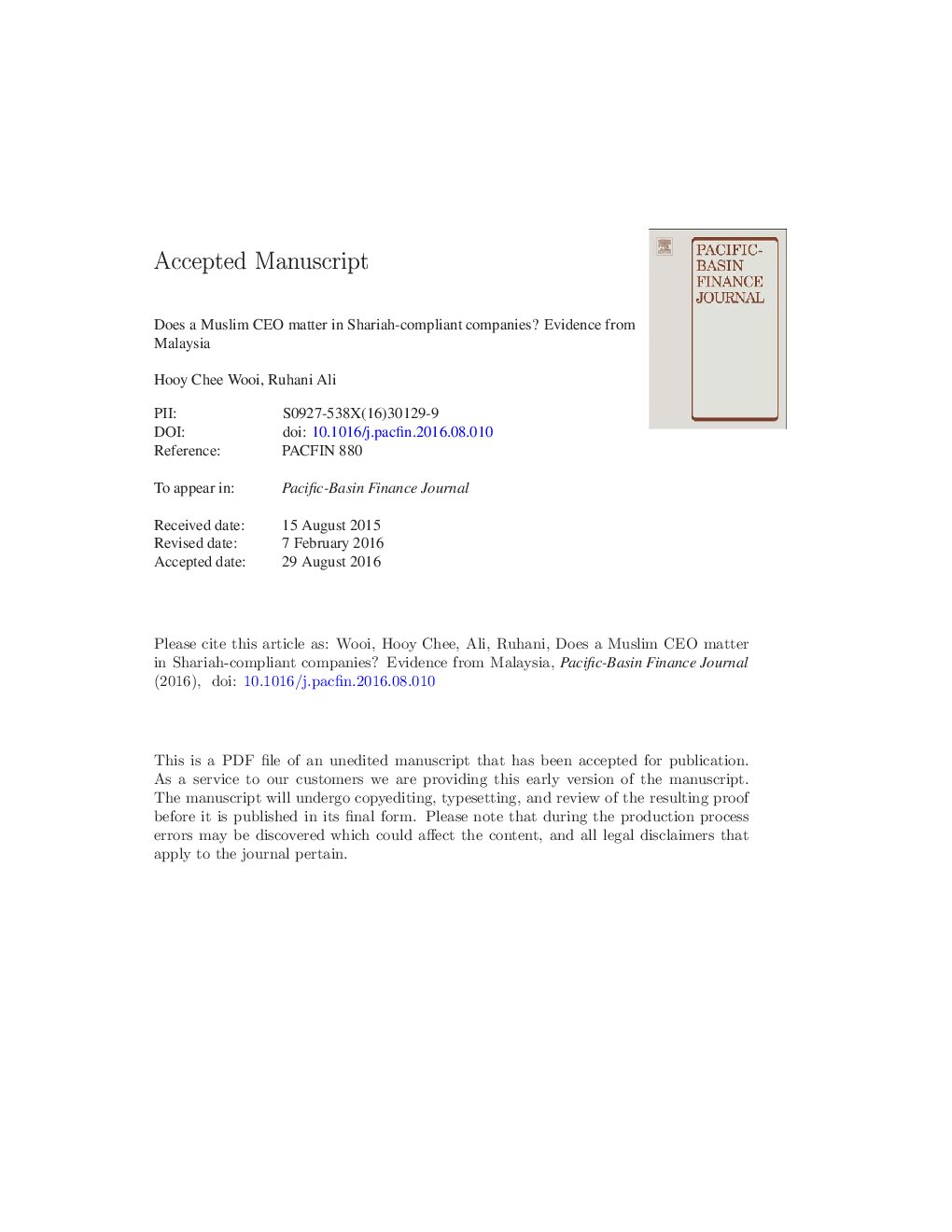| Article ID | Journal | Published Year | Pages | File Type |
|---|---|---|---|---|
| 5102337 | Pacific-Basin Finance Journal | 2017 | 34 Pages |
Abstract
This paper investigates the role of Muslim CEOs on the performance of Malaysian Shariah firms. Based on firm-level data from Bursa Malaysia from 2007 to 2013, we find no statistical difference between the performance of Shariah and non-Shariah firms; however, firms with Muslim CEOs do show lower performance levels relative to firms with non-Muslim CEOs. We further examine a sub-sample of the results for firms with widely held shareholder bases and inactive board members and find an obvious increase in the negative effect of Muslim CEOs under these two scenarios. Focusing on Shariah firms, we investigate whether a Muslim owner, Muslim chairman and Muslim-dominated board of directors facilitate the negative effects of Muslim CEOs. No supporting evidence is documented under a return on assets (ROA) model, but a Muslim-dominated board of directors is found to facilitate the negative effects of a Muslim CEO under a stock-return model in a robust analysis. Finally, we investigate whether a degree of the ownership concentration, a degree of board activeness and a degree of board independence moderates the negative effects of Muslim CEOs. We document consistently positive effects of ownership concentration on Muslim CEOs under an ROA as well as all other performance models.
Keywords
Related Topics
Social Sciences and Humanities
Economics, Econometrics and Finance
Economics and Econometrics
Authors
Chee-Wooi Hooy, Ruhani Ali,
